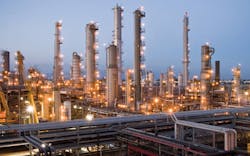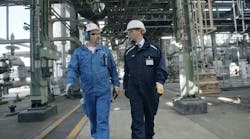Exxon Mobil Refining & Supply Company has been fined $566,600 for an explosion at its refinery in Torrance, California, that injured four workers.
California’s Division of Occupational Safety and Health, or Cal/OSHA, has issued 19 citations to ExxonMobil for workplace safety and health violations following an investigation into the February 18 explosion. According to the agency, most of the citations were classified as serious because of “a realistic possibility of worker death or serious injury.”
Six of the serious violations were also classified as willful, after Cal/OSHA concluded that ExxonMobil did not take action to eliminate known hazardous conditions at the refinery and intentionally failed to comply with state safety standards.
“Petroleum refineries have the responsibility to keep workers safe, and to also protect nearby communities and the environment,” said Christine Baker, director of California’s Department of Industrial Relations. “This investigation revealed severe lapses in Exxon’s safety protocols.”
The blast was triggered by a hydrocarbon release from the refinery’s fluid catalytic cracker (FCC) unit into its electrostatic precipitator (ESP). The hydrocarbons ignited inside the ESP, causing the unit to explode.
In 2007, a safety review identified concerns about flammable vapor leakage in the ESP. According to Cal/OSHA, refinery managers were aware of potential fire or explosion hazards as a result of the leakage, and failed to correct the danger.
Investigators also found that ExxonMobil’s incident response team, which included senior management, was aware of a leaking spent slide valve on the FCC unit before the accident occurred.
What’s more, the FCC unit had not been working properly for as many as nine years prior to the incident: there was no functional pressure transmitter, which meant that ExxonMobil was unable to monitor hydrocarbon pressure build-up in the unit.
There was also no written operating procedure for placing the FCC unit in “hot standby”.
Cal/OSHA issued an order prohibiting use of the FCC unit on February 18. That order is still in effect and will remain so until ExxonMobil demonstrates that the unit is safe to operate.


